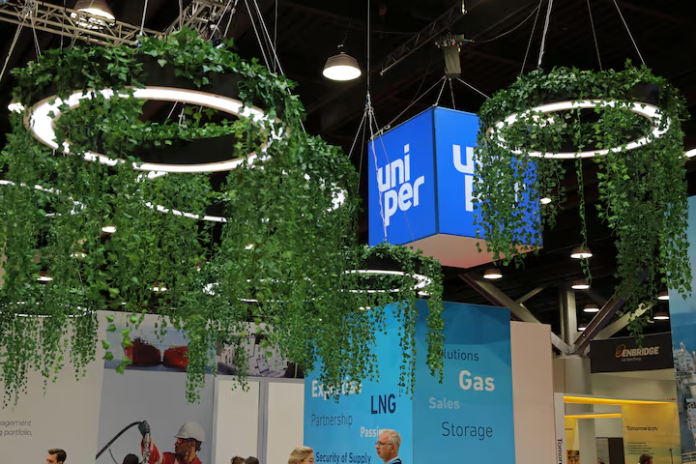German utility Uniper won a multi-billion dollar arbitration case against former long-time gas supplier Gazprom, breaking up inactive gas supply contracts and setting a potential precedent.
The decision marked a landmark victory for Uniper after Gazprom first cut and then suspended supplies. This forced the group to buy replacement volumes at enormous prices on the spot market.
It also severed the last remaining ties of a decade-long energy partnership between Berlin and Moscow, which came to an abrupt halt after the outbreak of the war in Ukraine in February 2022.
Uniper stated that the 7 June ruling by an arbitration court in Stockholm allowed it to terminate existing gas supply contracts, which by law still existed even though there was no gas available.
The court also granted the company more than 13 billion euros ($14 billion) in compensation for volumes of gas that Gazprom had not supplied since mid-2022, reducing contractually agreed supplies. Uniper CEO Michael Lewis declared:
This ruling provides legal clarity for Uniper. With the right of termination that we received in the arbitration ruling, we are ending the contracts with Gazprom Export.
Gazprom Export, the Russian company’s export division, successfully challenged the claim in a St. Petersburg court. It ruled in March that Uniper and its subsidiary would be fined 14.3 billion euros if they continued the arbitration proceedings.
The German government owns more than 99 per cent of Uniper’s shares. The Finance Ministry, which controls the government’s stake in Uniper, stated that the federal government was not a party or participant in the arbitration proceedings. Berlin had no influence over the operational management of the company, it added.
Next steps
The termination of the contracts removed the last risk Uniper faced to its presence in Russia after the group wrote off its funding in the Nord Stream 2 pipeline as well as its stake in its Russian subsidiary Unipro.
Uniper has also been involved in talks to find a solution to continue supplying gas through Ukraine to southeastern Europe after Kyiv announced in March that it would not extend its transit agreement with Russia’s Gazprom beyond the end of this year.
The German government was also taking part in talks between the European Commission and those countries still dependent on Russian gas, Economy Minister Robert Habeck stated on Tuesday. He added that the aim of the talks was to ensure reliable gas supplies to southeastern Europe without filling Russian coffers.
I am personally very involved in it.
